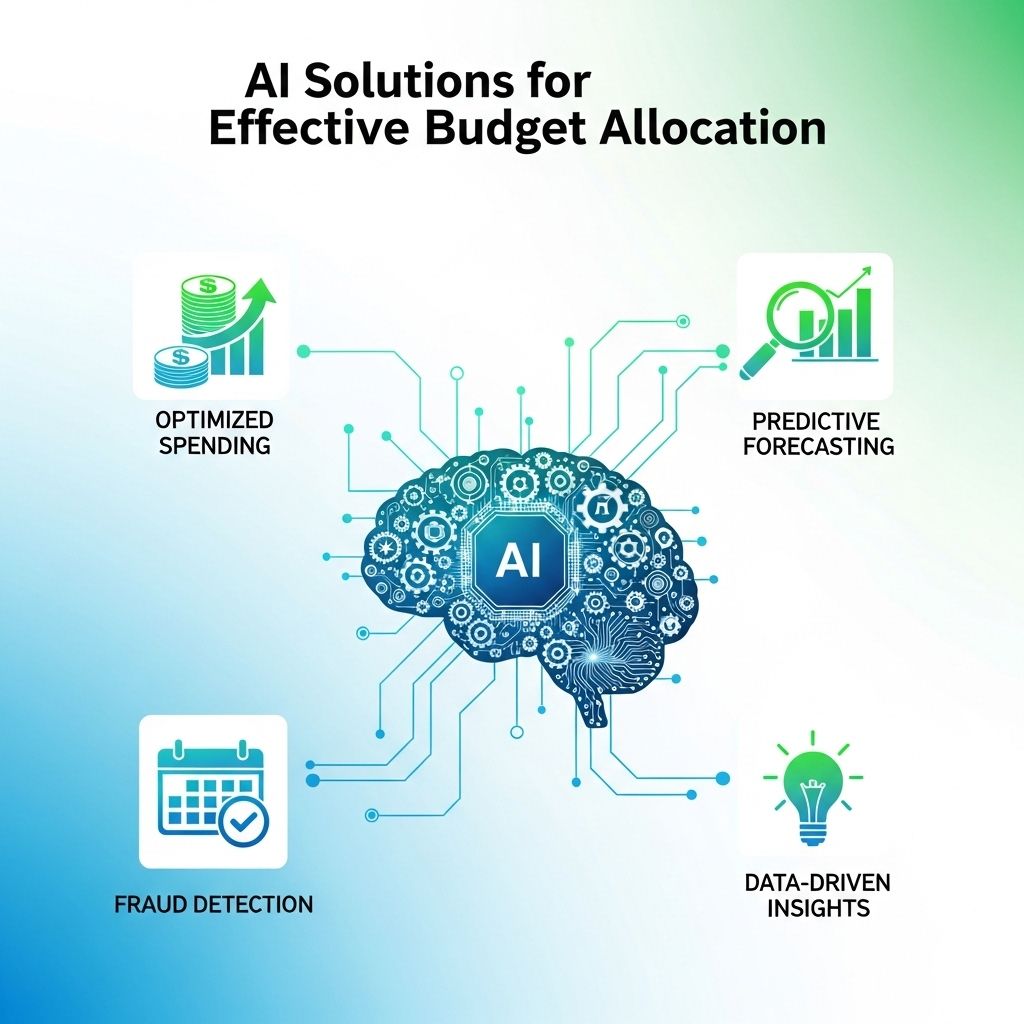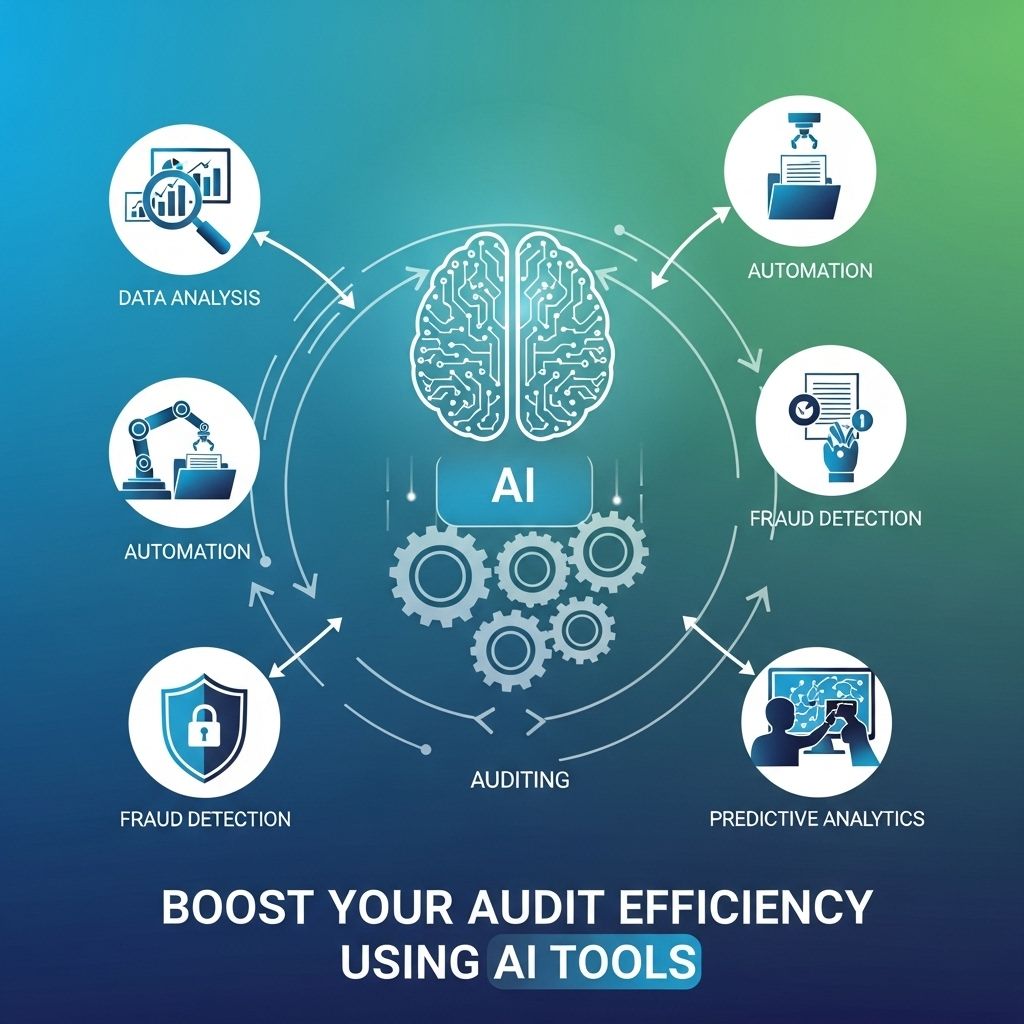Maximizing Your Budget with AI Solutions
Discover how AI solutions can enhance your budget allocation strategies for greater efficiency and effectiveness in financial planning.

In today’s fast-paced business environment, effective budget allocation can make or break an organization’s financial health. As companies strive to maximize their resources and drive growth, leveraging artificial intelligence (AI) has emerged as a game-changing solution. AI tools can analyze vast amounts of data, identify trends, and provide insights that empower decision-makers to allocate budgets more efficiently. This article explores how AI solutions can enhance budget allocation processes, providing strategies, tools, and real-world applications.
Table of Contents
Understanding Budget Allocation
Budget allocation refers to the process of distributing financial resources across various departments, projects, or initiatives within an organization. This process is crucial because it directly impacts operational efficiency, project success, and overall financial performance. Traditional budget allocation methods often rely on historical data, departmental requests, and intuition, which may lead to suboptimal resource distribution.
Challenges in Traditional Budget Allocation
- Data Overload: Organizations often face an overwhelming amount of data, making it difficult to discern what is relevant.
- Manual Errors: Human involvement in budget allocation can introduce biases and errors.
- Limited Predictive Insights: Traditional methods may not adequately forecast future needs or potential returns on investment (ROI).
- Inflexibility: Rigid budget processes can hinder an organization’s ability to adapt to changing circumstances.
The Role of AI in Budget Allocation
AI technologies can address many of the challenges associated with traditional budget allocation. By harnessing machine learning, predictive analytics, and data mining, organizations can streamline their allocation processes and make more informed decisions. Here are several ways AI can enhance budget allocation:
1. Predictive Analytics
AI can analyze historical financial data to predict future trends and outcomes, enabling organizations to allocate their budgets based on projected needs. This involves:
- Analyzing past spending patterns.
- Identifying seasonal trends and fluctuations.
- Forecasting potential growth areas.
2. Data-Driven Decision Making
With AI, decision-makers can rely on data-driven insights rather than subjective judgment. AI helps to:
- Aggregate data from multiple sources for a comprehensive view.
- Identify correlations and causations that might not be evident through manual analysis.
- Recommend allocation strategies based on empirical evidence.
3. Real-Time Monitoring
AI tools can provide real-time insights into budget performance, allowing organizations to adjust allocations dynamically. This means:
- Tracking expenditures in real-time.
- Identifying emerging issues or opportunities quickly.
- Enabling proactive adjustments to mitigate overspending or seize new opportunities.
4. Scenario Analysis
AI can simulate various budget allocation scenarios, helping organizations understand the potential impact of different strategies. Key benefits include:
- Running “what-if” analyses to anticipate outcomes.
- Evaluating risk factors associated with various allocation strategies.
- Supporting strategic planning by visualizing long-term effects.
AI Tools for Budget Allocation
Numerous AI tools and platforms offer solutions for enhancing budget allocation processes in organizations. Here is a selection of top tools available in the market:
| Tool Name | Description | Key Features |
|---|---|---|
| Adaptive Insights | An enterprise performance management software that helps with budgeting and forecasting. | Real-time data analytics, collaborative planning, and scenario modeling. |
| IBM Planning Analytics | A solution that combines AI with analytics to optimize financial planning. | Automatic insights generation, integrated financial and operational planning. |
| Oracle Hyperion Planning | A cloud-based solution for budgeting, forecasting, and reporting. | Predictive analytics, what-if scenarios, and customizable dashboards. |
| Microsoft Power BI | A business intelligence tool that can visualize budget performance data effectively. | Data visualization, seamless integration with other tools, and AI-powered insights. |
Case Studies: Successful Implementation of AI in Budget Allocation
Understanding how organizations implement AI solutions for budget allocation provides valuable insights. Below are two case studies demonstrating successful AI integration:
Case Study 1: Retail Giant
A leading retail company used machine learning algorithms to analyze customer purchasing patterns and optimize their marketing budget. By identifying the most profitable customer segments, they were able to:
- Increase marketing ROI by 30%.
- Streamline budget allocation to focus on high-impact advertising channels.
- Reduce unnecessary spending on underperforming campaigns.
Case Study 2: Financial Services Firm
A global financial services firm implemented an AI-driven budgeting solution that integrated data from multiple departments. This led to:
- A more accurate forecasting process, reducing budgeting errors by 25%.
- Improved collaboration among teams, leading to better-informed decision-making.
- Real-time tracking of budget adherence, allowing for immediate corrective actions.
Best Practices for Implementing AI in Budget Allocation
To harness the benefits of AI for budget allocation effectively, organizations should follow these best practices:
- Define Clear Goals: Establish specific objectives for what you want to achieve with AI.
- Invest in Quality Data: Ensure that the data used for AI analysis is accurate and comprehensive.
- Choose the Right Tools: Evaluate and select AI tools that align with your organizational needs.
- Train Your Team: Provide necessary training for staff to leverage AI tools effectively.
- Monitor and Optimize: Continuously review the AI system’s performance and make adjustments as needed.
Conclusion
As organizations seek to navigate the complexities of budget allocation, AI presents a transformative opportunity to enhance decision-making processes. By leveraging predictive analytics, data-driven insights, and real-time monitoring, companies can allocate their resources more effectively and drive sustainable growth. The future of budget allocation is undoubtedly linked to the advancements in AI, making it essential for businesses to adopt these technologies for a competitive edge.
FAQ
What are AI solutions for effective budget allocation?
AI solutions for effective budget allocation involve using advanced algorithms and data analytics to optimize financial resources, ensuring that funds are allocated efficiently across various departments and projects.
How can AI improve budget forecasting?
AI can improve budget forecasting by analyzing historical data and identifying patterns, allowing organizations to make more accurate predictions about future financial needs and trends.
What benefits do AI-driven budget allocation tools provide?
AI-driven budget allocation tools provide benefits such as enhanced accuracy, real-time data analysis, improved decision-making, and the ability to quickly adapt to changing financial circumstances.
Can AI solutions help in identifying cost-saving opportunities?
Yes, AI solutions can analyze spending patterns and identify areas where costs can be reduced without compromising quality, leading to more efficient budget allocation.
How do organizations implement AI for budget allocation?
Organizations implement AI for budget allocation by integrating AI tools with their existing financial systems, training staff on data analysis, and continuously refining their algorithms based on performance outcomes.
What industries benefit most from AI budget allocation tools?
Industries such as finance, healthcare, retail, and manufacturing benefit most from AI budget allocation tools due to their complex financial structures and the need for precise resource management.








